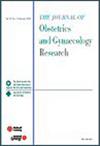Maternal cardiovascular dynamics in twin pregnancies complicated by twin-to-twin transfusion syndrome
Abstract
Aim
Twin pregnancies affect maternal circulation by increasing the circulating blood volume and enlarging the uterus due to excess amniotic fluid. Nevertheless, how twin-to-twin transfusion syndrome (TTTS) affects maternal circulation remains unclear. Our aim was to examine maternal circulation changes at TTTS onset.
Methods
This cohort study was conducted at the Toho University Omori Medical Center from October 2022 to September 2023. Patients were divided into three groups, singleton pregnancy (singleton), uncomplicated monochorionic diamniotic (MD) twin pregnancy (nMD), and TTTS groups. We prospectively collected echocardiographic data to evaluate the left ventricular function, left ventricular contractility, diastolic performance, and inferior vena cava diameter.
Results
Thirty-one, 17, and 18 patients were assigned to the singleton, nMD, and TTTS groups, respectively. The left ventricular end-systolic volume (ESV) was significantly lower in the TTTS group than in the nMD group [ESV: 23.9 ± 9.2 mL vs. 13.3 ± 8.4 mL]. The left ventricular end-diastolic volume (EDV) was no significant difference, but a decreasing trend in the TTTS group than in the nMD group. The left ventricular ejection fraction was significantly lower in the nMD group than in the TTTS group [72.2 ± 6.4% vs. 80.1 ± 5.9%]. The heart rate was significantly higher in the TTTS group than in the other two groups. Cardiac output was similar among the groups.
Conclusions
MD twin pregnancy with TTTS may decrease circulating blood volumes. Maternal cardiac function may be adapted to compensate for cardiac output in patients with TTTS.

 求助内容:
求助内容: 应助结果提醒方式:
应助结果提醒方式:


